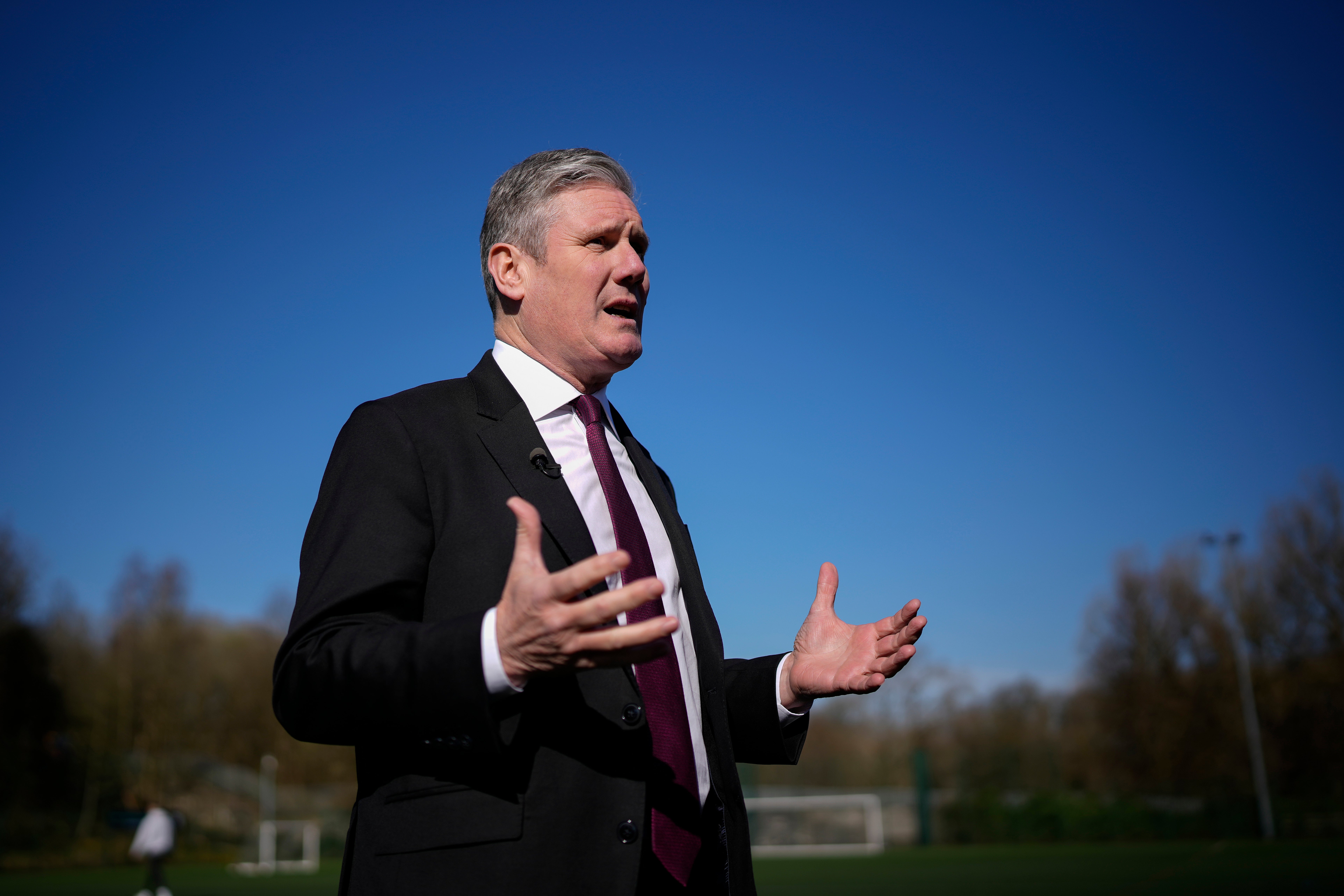Starmer has tried plenty of slogans – but voters need a clear vision for the future from Labour
Passing his three-year anniversary as party leader, Starmer could learn a lot from Harold Wilson’s first election victory in 1964


As Keir Starmer passes his third anniversary as Labour leader, some allies shy away from comparing his position to Tony Blair’s commanding one before the 1997 election, knowing that Starmer has not yet sealed the deal with voters. They prefer a comparison to another Labour leader, Harold Wilson, ahead of the first of his four election victories in 1964.
Wilson is the Labour leader Starmer cites when asked to name his favourite (he can’t say Tony Blair because strangely it still offends some in his party to praise someone who won three elections). Wilson and Starmer have quite a lot in common. Both were grammar school boys from lower middle-class families. Both hailed from the Labour left, but led the party to the right as they managed its perennial divisions.
Starmer has studied very closely the revealing biography of Wilson, The Winner by Nick Thomas-Symonds, the shadow international trade secretary. The author sees parallels between Wilson’s inheritance in 1964 after “13 wasted years” of Tory rule and the even worse economic position, with public services under huge pressure, he believes Starmer would face on entering Downing Street in 2024.
Starmer has a lot to learn from Wilson. His famous “white heat of technology” speech in 1963 encapsulated Labour’s bold, forward-looking offer for a new era. Starmer has yet to find such an overarching theme, having tried 12 slogans at the last count – from “another future is possible” in 2020 to “build a better Britain” recently.
Perhaps the right one is staring Starmer in the face. With the government refusing to compete with Joe Biden’s massive subsidies for green industries, Labour has pledged to spend £28bn a year on a green prosperity plan. “We can transpose ‘white heat’ to ‘green heat,’ I suppose,” Thomas-Symonds told a debate on the lessons to be learnt from Wilson staged last night by the Labour think tank Progressive Britain.
Starmer should take Thomas-Symonds’ advice. A green jobs revolution is one policy the Tories can’t convincingly steal from Labour, having filched its childcare and back-to-work plans. Jeremy Hunt’s decision on Biden’s blitz last week was to… put off a decision until the autumn. Yet Labour is not getting much bang for its huge number of bucks. There’s a fierce debate inside the shadow cabinet about whether the £28bn-a-year pledge should be sacrosanct or subject to the shadow chancellor Rachel Reeves’ tight fiscal rules. To be different to the Tories, Starmer should keep it and trumpet it.
Glen O’Hara, professor of history at Oxford Brookes University, told the same event Starmer needed to do three things: find a short, snappy “elevator pitch” to voters; outline a vision for the future like Wilson’s “white heat”, and show more passion. He saw another echo of 1964, Starmer must wrestle power from a Tory government with a big majority, and so could find himself with a small majority or even heading a minority government. Only one of Wilson’s four victories was a big one – a majority of 98 in 1966.
I think Starmer should also adopt another Wilson mantra. He told Labour’s 1962 conference: “This party is a moral crusade, or it is nothing.” Starmer declines to condemn the government’s plan to send asylum seekers to Rwanda as immoral and wrong. I’m told he came under pressure to do so at a meeting of Labour’s national executive committee last week, but he insists on attacking it as not practical.
With some Labour figures thinking that an international crisis could be Starmer’s first big challenge given our uncertain world, he could take another leaf out of Wilson’s book. Wilson rebuffed intense pressure from US president Lyndon B Johnson to send even a single UK battalion to join American troops in Vietnam. It was the polar opposite of Blair’s promise to George Bush to “be there” a year before the US invaded Iraq.
Starmer allies insist the three-stage strategy he decided three years ago is on track: reform the Labour Party after the Corbyn era; expose the government’s failings (a task unexpectedly aided by the Tories) and then set out Labour’s positive alternative.
Wilson and Blair – along with Clement Attlee, the only Labour leaders to win an election – both offered a successful mix of reassurance and change.
Starmer has done well on reassuring those voters with doubts about Labour – whether on the economy, patriotism, defence or immigration. But now he needs to press the change button.
Wilson’s experience proves that “time for change” is a powerful election weapon – but only if the party wins positive support for its vision for the future. Three years on, it’s time for Starmer to answer the “change to what?” question.
Join our commenting forum
Join thought-provoking conversations, follow other Independent readers and see their replies
Comments
Bookmark popover
Removed from bookmarks